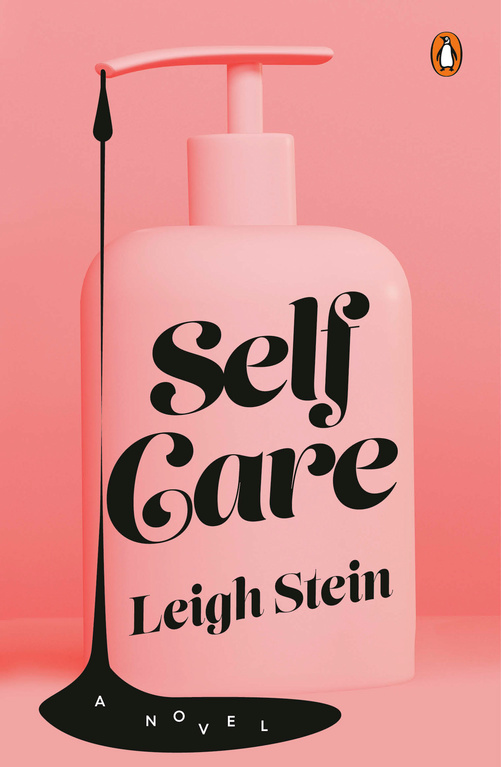

If this summer finds you languishing indoors, paralyzed by some combination of economic insecurity, political despair, cultural exhaustion and personal ennui and scrolling through bottomless social media feeds that exacerbate, rather than ameliorate, such a profound existential loneliness, Leigh Stein’s second novel and fourth book might be just the hit of adrenaline you need to delete your apps permanently — or at the very least, leap off your couch and do something better with your time.
Set in the heady months after the 2016 election, Stein’s dark satire, “Self Care,” chronicles the ups and downs (mostly downs) of Richual co-founders Maren Gelb and Devin Avery and their senior vice president, Khadijah Walker. Richual, a “digital sanctuary” for women that’s like a Goop-Instagram love child, preaches the gospel of self-care while feeding vampirically on the vulnerabilities of its users. The company’s “Ten Commandments,” stenciled in fuchsia and sherbet on their office walls, include such ersatz enlightenment as “Stay woke,” “Self-care is not selfish” and “Believe women.” Hashtag corporate feminism, hashtag facepalm.
While Richual readies for its series B, trouble gains footing at the office. Maren’s a workaholic and an alcoholic. Devin detoxes nonstop as the company’s face and body, but her perfectionism has its own toxicity. Khadijah has important news to share with Maren, but Maren’s too self-absorbed to listen. Perhaps, in another, non-late-capitalist universe, these messy startup problems could be healed with time and care, but of course — of course! — the money guy, Evan Wiley, a former “Bachelorette” contestant and board member, has a long history of sexual misconduct. When he gets #MeToo’ed, the company implodes. I won’t spoil the details, nor will I spoil who survives the requisite purge.

Satire, written contemporaneously, explains us to ourselves while history is still catching up. Plato, when asked to explain Athenian society, directs us to Aristophanes, who gleefully ridiculed the status quo in Greek arts, culture and politics. There is much to be ridiculed in our digital age, and Stein takes aim accordingly. Personal branding, for example, is one of her primary targets, for it “put(s) women in their own private cells (their social media profiles), under constant surveillance to remain beautiful (but real), strong (but vulnerable), unique (but authentic), vocal about their beliefs (but only the ones that everyone else agrees are worth believing in). We were both the prisoners and the guards.”
I cringe copying these words down — is it the sting of self-recognition, or the brief but necessary pain of inoculation, meant to immunize us against life-threatening illness?
A society’s tolerance for satire is directly related to the health of its democracy; that’s why censorship and authoritarianism go hand in hand. While reading “Self Care,” I was reminded of Chekhov, another satirist, who argued that the work of the writer is not to solve the problem but to state the problem correctly. Our problem, according to Stein, is that the corporatized internet commodifies individuals, tribalizes groups, thereby undermining our society — and, ipso facto, our humanity.
The solution to the problem is for all of us to figure out — though maybe not online.
“Self Care”
By Leigh Stein
Penguin Books
(243 pages, $16)